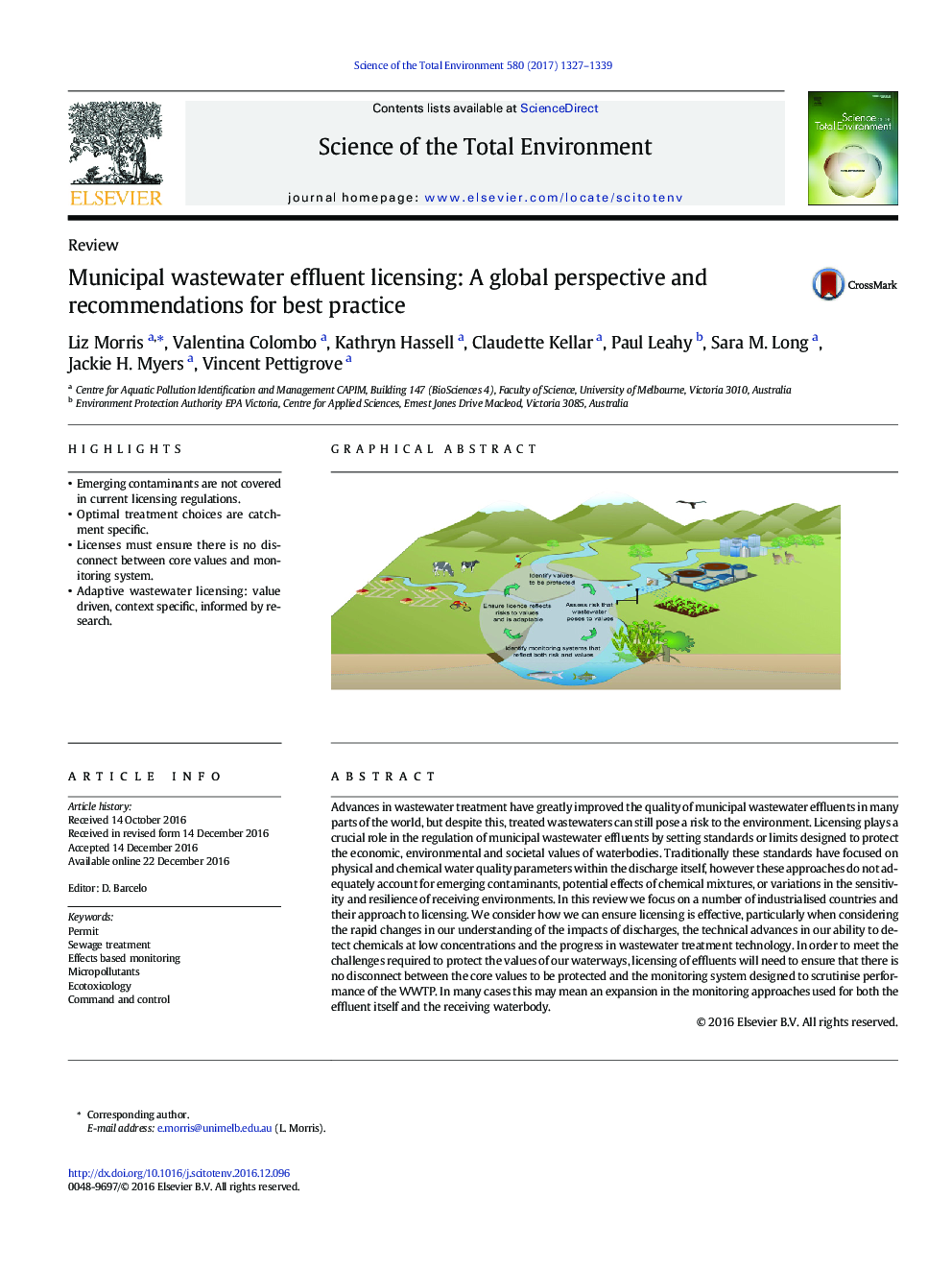| Article ID | Journal | Published Year | Pages | File Type |
|---|---|---|---|---|
| 5752043 | Science of The Total Environment | 2017 | 13 Pages |
â¢Emerging contaminants are not covered in current licensing regulations.â¢Optimal treatment choices are catchment specific.â¢Licenses must ensure there is no disconnect between core values and monitoring system.â¢Adaptive wastewater licensing: value driven, context specific, informed by research.
Advances in wastewater treatment have greatly improved the quality of municipal wastewater effluents in many parts of the world, but despite this, treated wastewaters can still pose a risk to the environment. Licensing plays a crucial role in the regulation of municipal wastewater effluents by setting standards or limits designed to protect the economic, environmental and societal values of waterbodies. Traditionally these standards have focused on physical and chemical water quality parameters within the discharge itself, however these approaches do not adequately account for emerging contaminants, potential effects of chemical mixtures, or variations in the sensitivity and resilience of receiving environments. In this review we focus on a number of industrialised countries and their approach to licensing. We consider how we can ensure licensing is effective, particularly when considering the rapid changes in our understanding of the impacts of discharges, the technical advances in our ability to detect chemicals at low concentrations and the progress in wastewater treatment technology. In order to meet the challenges required to protect the values of our waterways, licensing of effluents will need to ensure that there is no disconnect between the core values to be protected and the monitoring system designed to scrutinise performance of the WWTP. In many cases this may mean an expansion in the monitoring approaches used for both the effluent itself and the receiving waterbody.
Graphical abstractDownload high-res image (240KB)Download full-size image
